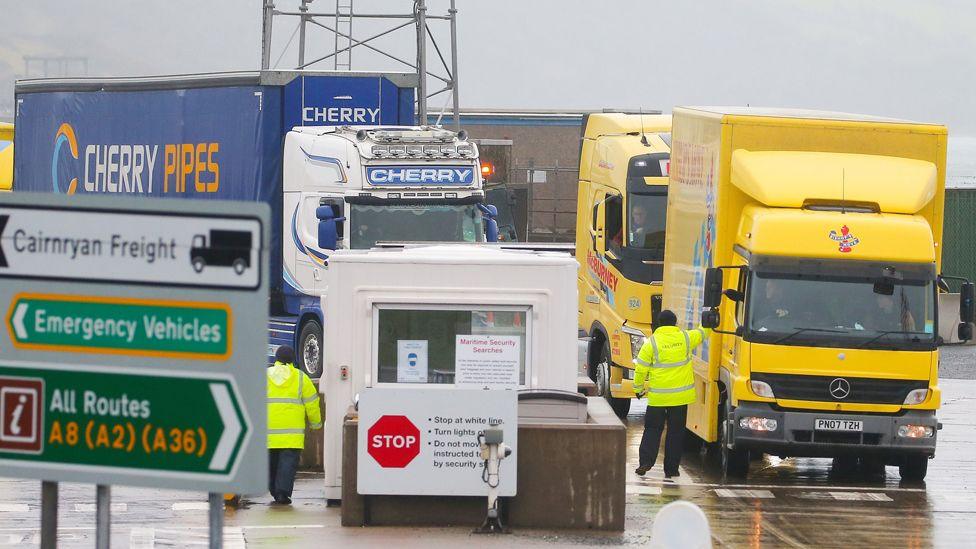Q&A: The NI Protocol medicines issue explained
- Published
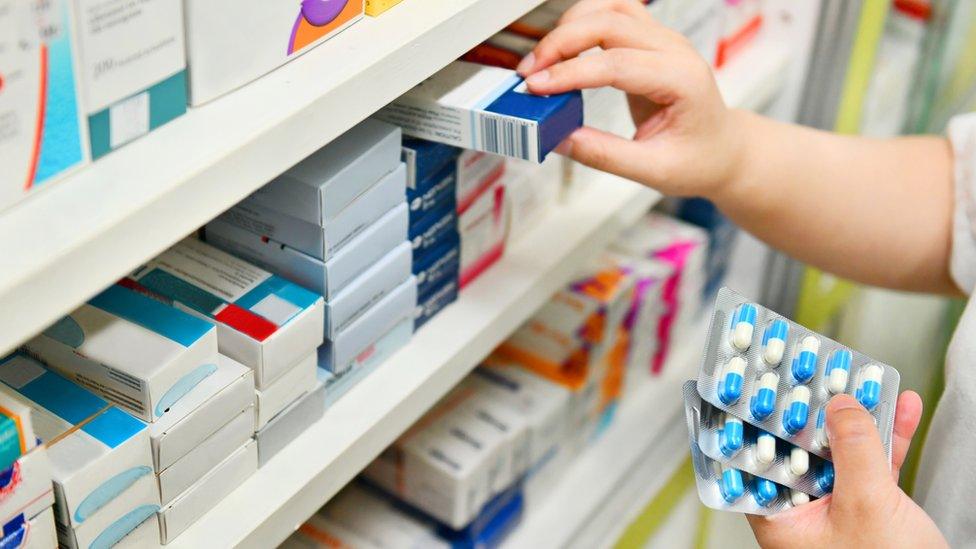
A body representing some UK pharmaceutical firms has warned that an EU plan to guarantee the supply of medicines from Great Britain to Northern Ireland is unworkable.
BBC News NI has examined what is behind the matter.
Why is the supply of medicines an issue?
It is a consequence of the protocol, the Northern Ireland Brexit deal agreed by the UK and EU.
It leaves Northern Ireland in the EU's single market for goods, a market which includes medicines.
The protocol means that goods can flow freely between the Republic of Ireland and Northern Ireland but goods arriving into Northern Ireland from the rest of the UK are subject to controls and checks to ensure they comply with EU standards.
Northern Ireland gets most of its medicines from distributors and manufacturers in GB but, due to a "grace period", controls have not yet been imposed on the movement of those products.
That grace period was due to expire in January, but the UK government has indefinitely extended it.
Nonetheless, some firms had notified Stormont's Department of Health that they intended to stop supplying some medicines to Northern Ireland at the end of the grace period because they would have had to comply with expensive new regulatory processes to put GB-sourced products on the market in Northern Ireland.
By the end of August, the health department had been notified that 910 medicines were due to be withdrawn, with a further 2,400 at risk.
What was due to happen at the end of the grace period?
A fundamental part of the EU's medicines regulation is that products being imported to the single market undergo quality control or "batch testing" at a facility inside the single market.
In practical terms, this would mean most products entering from GB would have to undergo batch testing at laboratories in Northern Ireland, a new and significant expense.
Additionally, anyone responsible for placing those products on the market in Northern Ireland, primarily wholesalers, would need to obtain what is known as an EU "manufacturing authorisation".
This also requires the oversight of what is known as a "qualified person".
Finally, medicines to be distributed in Northern Ireland would have different regulatory labelling requirements from those for sale in GB.
All this adds up to a separate quality control, distribution and labelling system for Northern Ireland.
Why not just get the medicines direct from the EU?
The EU did intend the grace period to be used for supply lines to change in this way.
A senior UK official told the BBC that some firms have been planning for this, but that it is only an option for a limited number of products, specifically branded on-patent medicines.
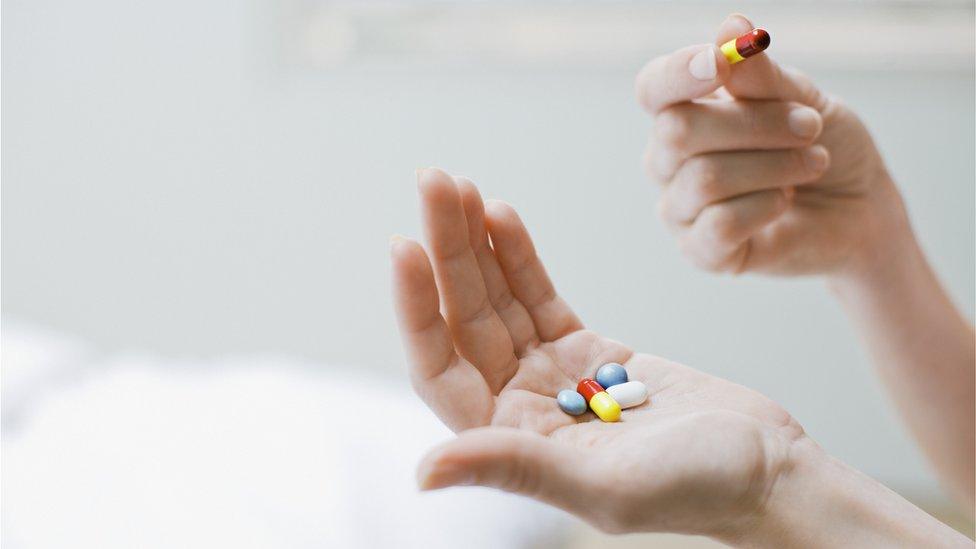
Many of these medicines are manufactured in the EU, particularly Belgium, France and Germany.
The products could be shipped directly to Ireland and on to Northern Ireland, never entering GB, so no additional quality control processes would be required.
Additionally, the manufacturers would ask: "Do we already have EU-compliant English language packaging for these drugs?" If they are sold in Ireland the answer is "yes" so there would be no requirement to create Northern Ireland-specific packaging.
This would, however, mean that some products or pack sizes would not be available if they were not already sold in Ireland.
But the real problem concerns off-patent generic drugs, which are very widely used in the UK health service.
Many of these products are manufactured in the UK with no option to source them in the single market and so avoid the additional quality control process.
Furthermore, Ireland makes much less use of generics so there would be a bigger requirement to have Northern Ireland-specific packaging.
Generic medicine is a lower profit margin business so the companies are not keen on taking on the extra cost of supplying a very small market like Northern Ireland.
It is no surprise, therefore, that generics manufacturers have been most concerned about the protocol.
What has the EU proposed?
In July, the EU publicly acknowledged there was a problem, publishing a paper, external which stated: "Adapting supply chains to the new situation is still particularly challenging, in particular for suppliers of generics."
Its big idea is that rather than having those regulatory processes like batch testing happening in Northern Ireland they can happen in GB, at the manufacturer's labs.
This would require a change to EU law, with draft legislation expected to be published within the next few weeks.
This would be subject to certain conditions, including EU-compliant labelling for Northern Ireland products and "enhanced enforcement" in the Northern Ireland market.
European Commission vice president Maroš Šefčovič briefed Northern Ireland party leaders on the plan during his recent visit and said it was his top priority that people in Northern Ireland continue to get the medicines they need.

Maroš Šefčovič visited Northern Ireland in September for talks on the protocol
Problem solved?
The generics manufacturers do not agree.
They say that "it hammers home" the need for a separate and specialised Northern Ireland product distinct from a GB one so the additional complexity and cost remains.
The British Generic Manufacturers Association said: "In an environment where margins are razor-thin, extra complexity isn't feasible. The alternatives - a UK-wide licence for medicines - would serve Northern Irish patients best."
A senior UK official also pointed to the fact that companies were continuing to notify Stormont of the intent to discontinue products in Northern Ireland well after the EU had published its proposal, suggesting industry is not confident it will work.
What does the UK propose?
In its July command paper, external, the government said that given "the range and depth" of the challenges around this issue, "the simplest way forward may be to remove all medicines from the scope of the protocol entirely".
Related topics
- Published15 September 2021
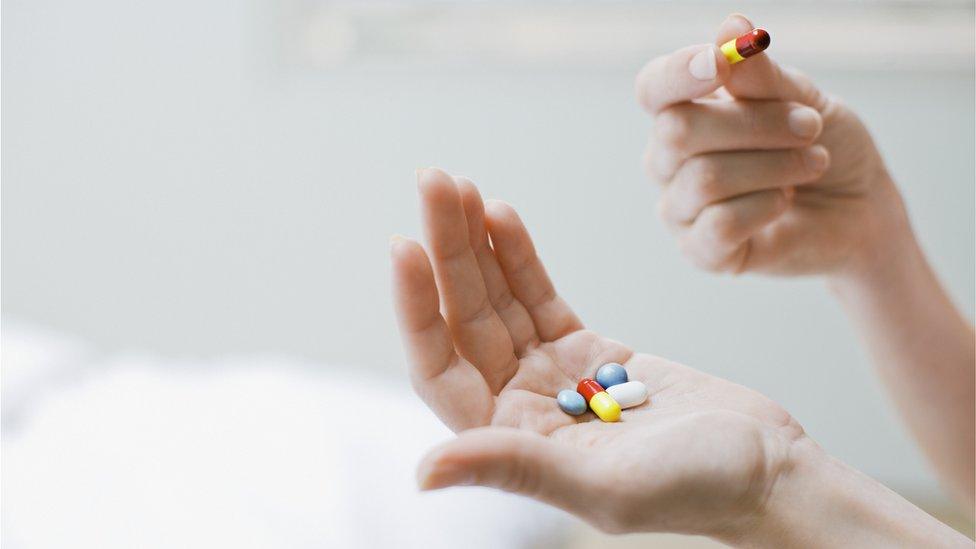
- Published3 September 2021

- Published6 September 2021
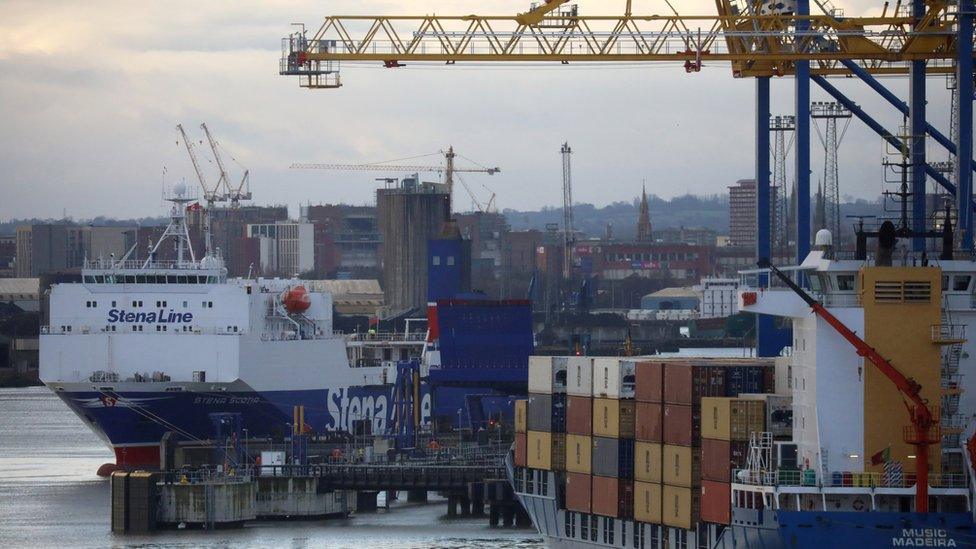
- Published31 August 2021
